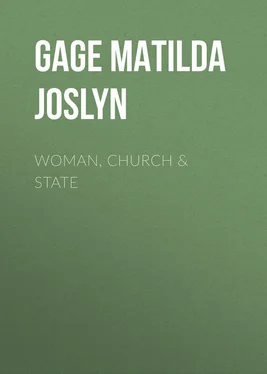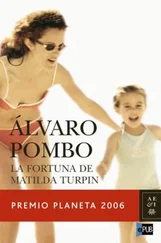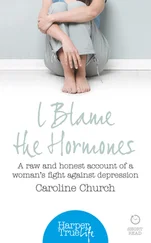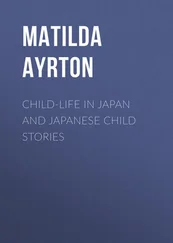Matilda Gage - Woman, Church & State
Здесь есть возможность читать онлайн «Matilda Gage - Woman, Church & State» — ознакомительный отрывок электронной книги совершенно бесплатно, а после прочтения отрывка купить полную версию. В некоторых случаях можно слушать аудио, скачать через торрент в формате fb2 и присутствует краткое содержание. Жанр: foreign_antique, foreign_prose, на английском языке. Описание произведения, (предисловие) а так же отзывы посетителей доступны на портале библиотеки ЛибКат.
- Название:Woman, Church & State
- Автор:
- Жанр:
- Год:неизвестен
- ISBN:нет данных
- Рейтинг книги:3 / 5. Голосов: 1
-
Избранное:Добавить в избранное
- Отзывы:
-
Ваша оценка:
- 60
- 1
- 2
- 3
- 4
- 5
Woman, Church & State: краткое содержание, описание и аннотация
Предлагаем к чтению аннотацию, описание, краткое содержание или предисловие (зависит от того, что написал сам автор книги «Woman, Church & State»). Если вы не нашли необходимую информацию о книге — напишите в комментариях, мы постараемся отыскать её.
Woman, Church & State — читать онлайн ознакомительный отрывок
Ниже представлен текст книги, разбитый по страницам. Система сохранения места последней прочитанной страницы, позволяет с удобством читать онлайн бесплатно книгу «Woman, Church & State», без необходимости каждый раз заново искать на чём Вы остановились. Поставьте закладку, и сможете в любой момент перейти на страницу, на которой закончили чтение.
Интервал:
Закладка:
Colebrook’s Digest of Hindoo Law , compiled from the writings of the Bengal Pundit Jergunnat, ’Na Tercapanchama, from those of Vasist ha, Catayana, and other Indian authorities says:
In the Veda, in Codes of Law, in sacred ordinances, the wife is held as one person with the husband; both are considered one. When the wife is not dead, half the body remains; how shall another take the property when half the body of the owner lives? After the death of the husband the widow shall take his wealth; this is primeval law.
Though a woman be dependent, the alienation of female property, or of the mother’s right over her son by the gift of a husband alone 24 24 There are but few of the United States in which the authority of the father to bind out a living child or to will away an unborn one, is not recognized as valid without the mother’s consent.
is not valid in law or reason;
The female property of wives like the property of a stranger, may not be given, for there is want of ownership.
Neither the husband, nor the son, nor the father, nor the brother, have power to use or alien the legal property of a woman.
We hold it proper that the wife’s co-operation shall be required in civil contracts and in religious acts under the text.
A gift to a wife is irrevocable.
The collection of East Indian laws made under authority of the celebrated Warren Hastings, 1776, is of similar character. The kinds of property a wife can hold separate from her husband at her own disposal by will, are specified.
During long centuries while under Christian law the Christian wife was not allowed even the control of property her own at the time of marriage, or of that which might afterwards be given her, and her right of the disposition of property at the time of her death was not recognized in Christian lands, the Hindoo wife under immemorial custom could receive property by gift alike from her parents, or from strangers, or acquire it by her own industry, and property thus gained was at her own disposal in case of her death. Another remarkable feature of Indian law contrasting with that of Christian lands was preference of woman over man in heirship. In case of a daughter’s death, the mother heired in preference to father, son, or even husband.
That is called a woman’s property; First. Whatever she owns during the Agamini Shadee, i. e. Days of Marriage;…
Whatever she may receive from any person as she is going to her husband’s home or coming from thence.
Whatever her husband may at any time have given her; whatever she has received at any time from a brother; and whatever her father and mother may have given her.
Whatever her husband on contracting a second marriage may give her to pacify her.
Whatever a person may have given a woman for food or clothing.
Whatever jewelry or wearing apparel she may have received from any person; also whatever a woman may receive from any person as an acknowledgment or payment for any work performed by her. Whatever she may by accident have found anywhere.
Whatever she may gain by painting, spinning, needle-work or any employment of this kind.
Except from one of the family of her father, one of the family of her mother, or one of the family of her husband, whatever she may receive from any other person. Also if the father or mother of a girl give anything to their son-in-law, saying at the same time: “This shall go to our daughter,” and even without any words to this purpose at the time of making the gift, if they merely have it in their intention that the thing thus given should revert to their daughter, all and every one of these articles are called a woman’s property.
Her right of final disposal by will is also specified. Her effects acquired during marriage go to her daughters in preference to her sons, and possessing no daughters, to her mother.
When a woman dies, then whatever effects she acquired during the Agamini Shadee, even though she hath a son living, shall go first to her unmarried daughter; if there is but one unmarried daughter she shall obtain the whole; if there are several unmarried daughters, they all shall have equal share.
Property under the three forms of marriage, if no unmarried daughters and others mentioned here, goes to her mother before to her father; and if neither, to her husband, and if no husband to husband’s younger brother, or several younger brothers, (if several).
The specification of gifts of intention is remarkable in securing property to the wife that was seemingly given by the parents to the husband alone. An equally remarkable fact is the father’s heirship in preference to the husband’s, and the heirship of the daughters and mother in preference to any male relative however near, and is in striking contrast to Christian law in reference to woman’s property. If a husband neglect to provide his wife necessary food and clothing, the East Indian wife is allowed to procure them by any means in her power. Maine has not failed to recognize the superior authority of the eastern wife in relation to property over that of the Christian wife. He says:
“The settled property of a married woman incapable of alienation by her husband, is well known to the Hindoos under the name of Stridham.”
It is certainly a remarkable fact that the institution seems to have developed among the Hindoos at a period relatively much earlier than among the Romans. The Mitakshara , one of the oldest and most revered authorities of the Hindoo judicial treatises, defines Stridham, or woman’s property, as that which is given to the wife by the father, the mother, or a brother at the time of the wedding, before the nuptial fire.
But adds Maine:
The compiler of Mitakshara adds a proportion not found elsewhere; also property which she may have acquired by inheritance, purchase, partition, seizure or finding, is denominated woman’s property… If all this be
Stridham, it follows that the ancient Hindoo law secured to married women an even greater degree of proprietary independence than that given to them by the modern English Married Woman’s Property Act.
Property is common to the husband and the wife. The ample support of those who are entitled to maintenance is rewarded with bliss in heaven; but hell is the portion of that man whose family is afflicted with pain by his neglect. Therefore the Hindoo husband is taught to maintain his family with the utmost care. Maxims from the sacred books show the regard in which the Hindoo woman is held:
“He who despises woman despises his mother.”
“Who is cursed by woman is cursed by God.”
“The tears of a woman call down the fire of heaven on those who make them flow.”
“Evil to him who laughs at woman’s sufferings; God shall laugh at his prayers.”
“It was at the prayer of a woman that the Creator pardoned man; cursed be he who forgets it.”
“Who shall forget the sufferings of his mother at his birth shall be reborn in the body of an owl during three successive transmigrations.”
“There is no crime more odious than to persecute woman.”
“When women are honored the divinities are content; but when they are not honored all undertakings fail.”
“The households cursed by women to whom they have not rendered the homage due them, find themselves weighed down with ruin and destroyed as if they had been struck by some secret power.”
“We will not admit the people of today are incapable of comprehending woman, who alone can regenerate them.”
The marriage ceremony is of the slightest kind and under three forms:
1. Of mutual consent by the interchange of necklaces or strings of flowers in some secret place.
2. A woman says, “I am become your wife,” and the man says, “I acknowledge it.”
Читать дальшеИнтервал:
Закладка:
Похожие книги на «Woman, Church & State»
Представляем Вашему вниманию похожие книги на «Woman, Church & State» списком для выбора. Мы отобрали схожую по названию и смыслу литературу в надежде предоставить читателям больше вариантов отыскать новые, интересные, ещё непрочитанные произведения.
Обсуждение, отзывы о книге «Woman, Church & State» и просто собственные мнения читателей. Оставьте ваши комментарии, напишите, что Вы думаете о произведении, его смысле или главных героях. Укажите что конкретно понравилось, а что нет, и почему Вы так считаете.












